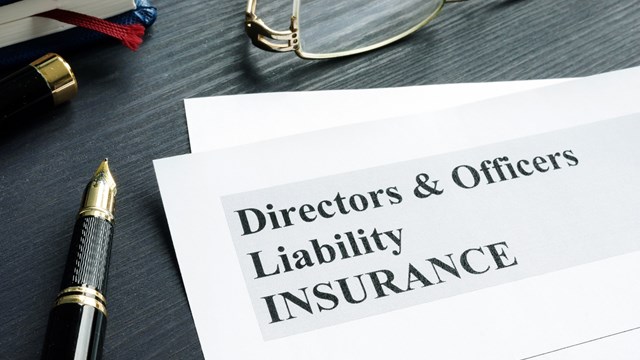
It's like setting your luggage on the conveyer at the airline check-in counter. Somehow your bags end up in your hands after the flight. It's just that we never quite know what happens in between letting our bag go and finding it again three hours later. The same can be said of insurance claims. When something bad happens, we call our agent to report the incident, and somehow, everything gets taken care of. It's what happens between that call and resolution that's the truly interesting part.
Getting Off on the Right Foot
For a co-op or condo association, surviving a successful insurance claim involves diligence, openness and perhaps most importantly, a good relationship with your insurance carrier. Establishing that good relationship often starts with finding the right carrier.
For many associations, finding a company with the most affordable rates is the first place they'll look. Steve Reisler, assistant vice president of Commerce Insurance Services, based in Toms River, suggests that boards and managers look in another direction first. "The most important thing when looking for an insurance carrier is to make sure they're A-rated—because you want someone that will be able to pay their bills and that has a history of paying claims."
The best way to cultivate a positive relationship between an association and their insurance carrier is to promote a good flow of communication. That way, if and when a claim arises, the association and the insurance agent already will have created a sense of trust between them.
Sharing the Bad News
When a fire hits the pool house or a visitor slips and falls on an icy sidewalk, it's time to call the insurance agent. Depending on the size of the association, that call will be made by the property manager. In other instances, that responsibility will fall to the board president. That call should never be made, however, by an individual unit owner.
"All claims should be reported through the board of directors or their representatives: typically, the management company," says Vincent Hager, vice president of JGS Insurance Services based in Holmdel. "The unit owners themselves are not the insureds on the association's policy. The association is and the board is their insurance trustee. All claims should be coordinated through the management office so that the board is aware of the claims activity and can decide on how to proceed."
In the event of property damage—or even more importantly, in the event of a potential liability issue, it's vital that that phone call gets made as soon as possible. "It's extremely important to notify the insurance company quickly, especially with regard to injury on the premises," says Christopher Grosso, a senior claims representative for Commerce Insurance Services. "The quicker you, the policyholder, respond, the better the evidence can be preserved. If [a report] is not made quickly, the situation can become somewhat difficult to defend."
And if the association or managing agent is unsure about whether or not a situation might constitute a claim, they should take advantage of that trust that should exist between them and their agent and simply ask questions. "Just calling your agent does not mean that you've initiated a claim yet," Grosso says, underscoring the fact that some managers or board members might be under the erroneous impression that discussing an incident means they have committed themselves to filing a claim.
Starting the Chain of Events
What happens once it's been determined that a claim should be filed? For property damage, the insurance agent will get in touch with a claim consultant within their company. The claim consultant will talk with the client to go over what the policy covers. At that point, an adjuster is called. If it's a routine claim, that call will take place within 24 hours of reporting. The adjuster will then call the association's designated contact person to secure details of the incident and arrange for an onsite visit. Then the adjuster will review the insured's coverage to determine the limits, deductibles and exclusions of the policy—"anything applicable to adjusting the claim," Grosso says.
The adjuster's other responsibility involves helping the association figure out the best way to ease the pain of damages in the time between when the claim is filed and when it can be paid off. They will advise on how to property can be moved out of harm's way and provide contact information for reputable restorers. "In short, they'll do what they can to mitigate the loss," says Grosso.
After the adjuster's initial visit, the insurance company will set up an investigation to unearth the cause of the damage. If the damage appears to be a covered loss, a proposal will be written on what it will take to return the insured to the status that existed before the incident. Then the adjuster will put together something called a proof of loss. When the payment is finally sent, the check will be made out to the official designee on the policy and the funds will be dispersed in the manner agreed upon in the original paperwork.
The steps involved in processing a liability claim are similar. "The process stays the same no matter what kind of insurance claim you're filing," Grosso says.
The main difference between property claims and liability claims lie in definitions. A building claim is a first-party claim, meaning that the insured is required to retain some of their damage through their deductible, Grosso says. Liability claims are third party claims. In a small number of instances, the insured may not be required to pay deductibles.
Another difference involves time. "Property claims, depending on the size and scope of the damage, should be settled in a short time frame," Hager says, adding that things usually can be resolved within 30-60 days. Liability claims might not even come to the fore until two years after the event, and if they go to court, those claims could take years more to resolve.
Simplifying the Process
Boards and managers can make the claim process easier by avoiding some simple mistakes. "One of the bigger problems that occurs is the timeliness of reporting," Grosso says. "An association might be made aware of a potential claim and then wait months to tell their agents about the potential problem."
If waiting prejudices an agency's ability to determine how or why an incident took place, that could cause serious problems and end up drawing out the entire process—something no one wants.
Hager agrees, adding that some boards may hold off on reporting property damage because they think the incident is not significant enough to warrant a claim. "Later, after repairs may have begun, they find out that there was more damage than originally anticipated, and the claim becomes much bigger and gets reported late," he says. "This puts the insurance carrier behind in their investigation and will cause delays in getting the claim adjusted."
Timely reporting can be an especially problematic issue when it comes to liability claims. Personal injury—and its inherent threat of lawsuits—can cause a certain amount of fear, and sometimes managers or board members will postpone telling their insurance carrier about potential problems or might withhold information that they think could be damaging.
"Many times someone may slip and fall on the premises, and an incident report is filed with the association but not turned over to the insurance agent for notice of a potential claim," Hager says. "If someone takes a report, a copy should be forwarded to the agent to protect the association in the future against a lawsuit that could be filed up to two years later." This also gives the insurance carrier ample time to launch an investigation while the evidence is still fresh, as Grosso also suggested.
"It's important to see the insurance carriers as a primary defense in these matters and a partner in your protection," Hager says.
In other instances, especially with regard to property damage, an association might take too much time creating temporary fixes for the problem. Say a roof is damaged by a falling limb. If that hole isn't covered, rain or snow could exacerbate that damage, increasing the cost of repair.
"Some people don't take their responsibility to mitigate their loss seriously," Grosso says. If the insured hasn't done everything possible to stem the tide of damage, then payment could be withheld.
Too Much of a Not-So-Good Thing?
All of us worry about what happens if we make too many insurance claims. Two car accidents in one month? Often the biggest fear is that our premiums will go up as a result—or that we'll be dropped by our insurer for good. Associations may have the same worries about their property and liability insurance coverage.
The truth of the matter is that every situation is different - every company, every claim, and every agent—meaning it's nearly impossible to tell what will happen with claims and premiums.
"It all depends on the individual situation," Grosso says. "If three claims come up in six months and then a fourth happens in the seventh month, then that could be a cause for concern. Frequency can affect the renewal of a policy." Meaning that a large number of claims could sway an agency when they are looking at whether a specific association is still a good risk.
Sometimes, to prevent that potential issue from arising, a broker may advise an association not to submit a claim. For example, if $575 worth of damage was done to the community pool, it may not be worth it to submit a claim with a $500 deductible.
As Hager says, "Insurance companies operate like most business in that they try and make a profit. If an association's claims exceed what was paid in premiums, the carrier often will non-renew the policy when it comes up for renewal. One short phrase that insurance companies live by is, 'frequency breeds severity.' In short, if an association experiences the same types of claims over and over again, then there is an inherent problem that needs to be addressed."
He gives an example of an association that is 15 years old. Suddenly, they start submitting a lot of claims about a broken water heater. It soon becomes apparent that the association is not maintaining or replacing their water heater when they need to, instead passing on the costs to the insurance company. "The insurance company may find the risk unsatisfactory if nothing is done to correct the situation," Hager says.
Ultimately, in the long run, the key to a good claims experience is communication. As with anything, dialogue and honesty are the one-two punch when it comes to success.
Liz Lent is a freelance writer and a frequent contributor to The New Jersey Cooperator.






Leave a Comment